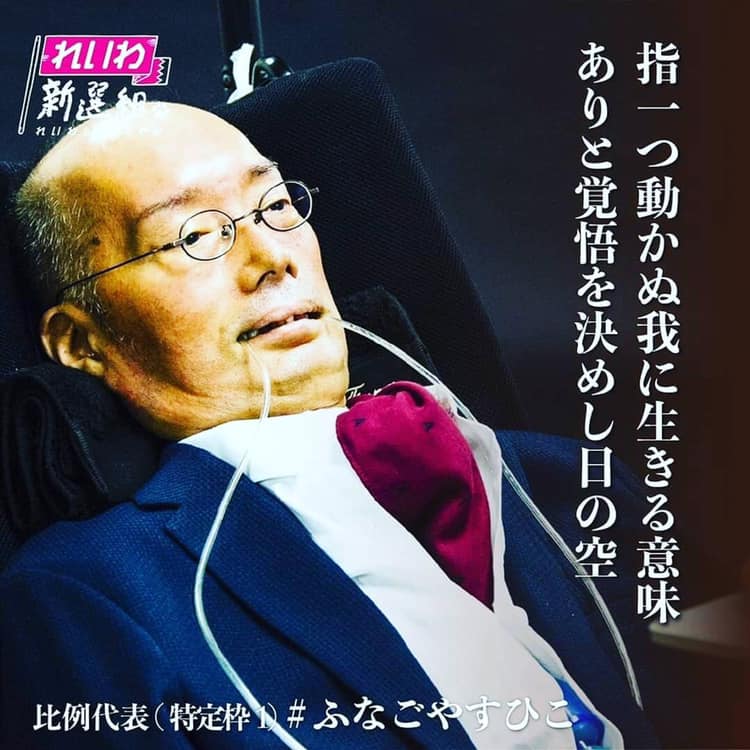
On July 21, voters in Japan elected two disabled lawmakers, wheelchair users, Yasuhiko Funago and Eiko Kimura to the upper chamber of the Japanese parliament, the Diet.
Funago, 61, was diagnosed with amyotrophic lateral sclerosis in 2000. He doesn’t move or speak and communicates via a computer voicing system or with the help of one of his assistants. Kimura, 54, has cerebral palsy and has used a wheelchair most of her life. Both were elected as candidates of the Reiwa Shinsengumi party — a progressive populist party that was formed in April by actor-turned-politician Taro Yamamoto, who is sometimes referred to as the “Japanese Bernie Sanders.”
In August, the Diet Steering Committee, which determines rules and regulations for Diet members, decided three seats would be removed from the chamber to make room for Funago and Kimura’s wheelchairs. Electric power sources will also be installed in the chamber and committee rooms so they can plug in their wheelchairs and medical equipment. In addition, their assistants will be allowed to attend meetings and legislative sessions with them and physically cast their votes for them if needed.
The fact that Funago and Kimura need so much help from assistants is significant to Satoshi Sato, the secretary general of Disabled Peoples’ International-Japan, who says the election sparked a broader conversation about disability in Japan. “Under the current Japanese PA system, we cannot use PA going to and during work, as well as going to school. These two Diet members need PAs and they are demanding the amendment of this system,” he said in a statement to New Mobility. “We were fighting about this issue for the past 20 years and finally the issue will be discussed due to these two individuals with significant disabilities. Media is also talking about this issue every day.”
In an editorial, “Diet members with disabilities critical for Japan’s future,” the Japan Times offered support for a change to Japan’s assistance system.“People with severe disabilities are eligible to receive publicly-funded care services at home but not at work under rules set by the welfare ministry. Since Funago and Kimura need care workers when they commute and work in the Diet, the issue of who will pay for their care services captured the public’s attention. … Regulations, such as the one involving publicly-funded care services for people with severe physical disabilities, must be reviewed and amended to accommodate the changing needs of society.”
At a press conference on election night, Funago said, via an assistant, “I want people to look at me and rethink what services and support are needed for people with disabilities.”
** This post was originally published on http://www.newmobility.com/2019/08/japan-elects-two-disabled-lawmakers-sparking-conversation-about-support-services/

